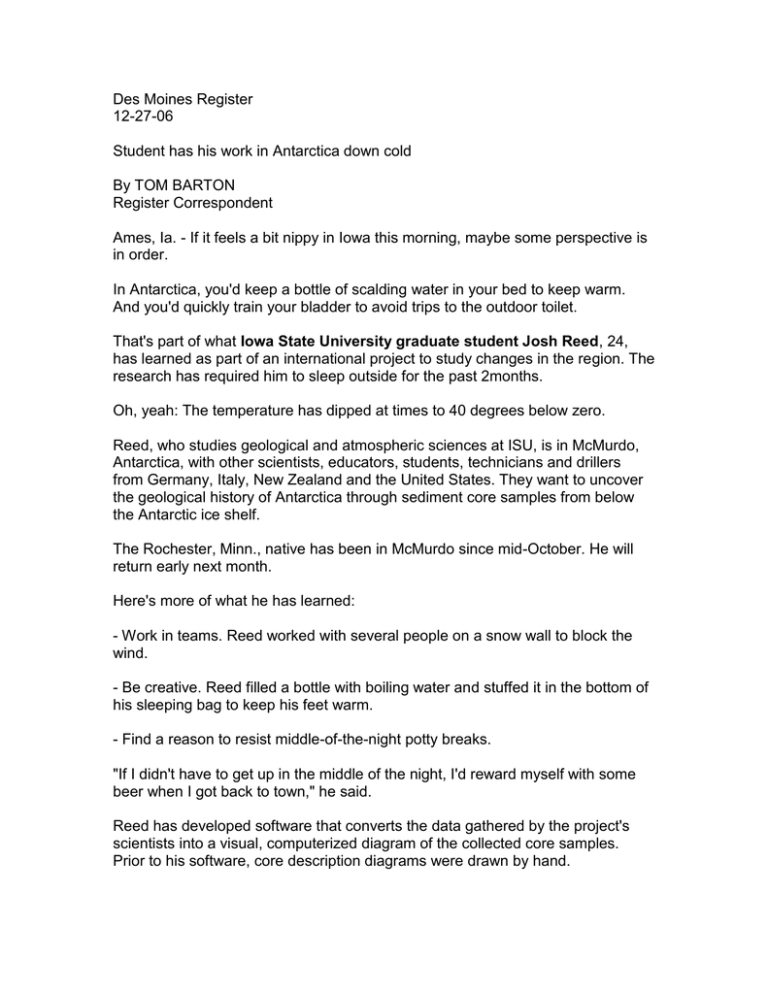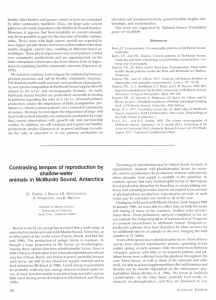Des Moines Register 12-27-06 Student has his work in Antarctica down cold
advertisement

Des Moines Register 12-27-06 Student has his work in Antarctica down cold By TOM BARTON Register Correspondent Ames, Ia. - If it feels a bit nippy in Iowa this morning, maybe some perspective is in order. In Antarctica, you'd keep a bottle of scalding water in your bed to keep warm. And you'd quickly train your bladder to avoid trips to the outdoor toilet. That's part of what Iowa State University graduate student Josh Reed, 24, has learned as part of an international project to study changes in the region. The research has required him to sleep outside for the past 2months. Oh, yeah: The temperature has dipped at times to 40 degrees below zero. Reed, who studies geological and atmospheric sciences at ISU, is in McMurdo, Antarctica, with other scientists, educators, students, technicians and drillers from Germany, Italy, New Zealand and the United States. They want to uncover the geological history of Antarctica through sediment core samples from below the Antarctic ice shelf. The Rochester, Minn., native has been in McMurdo since mid-October. He will return early next month. Here's more of what he has learned: - Work in teams. Reed worked with several people on a snow wall to block the wind. - Be creative. Reed filled a bottle with boiling water and stuffed it in the bottom of his sleeping bag to keep his feet warm. - Find a reason to resist middle-of-the-night potty breaks. "If I didn't have to get up in the middle of the night, I'd reward myself with some beer when I got back to town," he said. Reed has developed software that converts the data gathered by the project's scientists into a visual, computerized diagram of the collected core samples. Prior to his software, core description diagrams were drawn by hand. "In the end, all you had was a picture that represented some data. You didn't actually have the data itself," he said. Reed has worked on the software since his junior year at ISU. His research has gained attention from incoming ISU Provost Elizabeth Hoffman, who visited in mid-November as part of a study group from the National Science Board. Antarctica belongs to no country but is managed by the National Science Foundation under an international treaty. The science board, which is part of the foundation, is the U.S. science policy adviser to the president and Congress. Hoffman said the project could lead to breakthroughs in man's understanding of Earth. "This is how we learned about the ozone hole - through research being done in Antarctica," she said. "We're going to learn a great deal about global warming and life in extreme environments."

